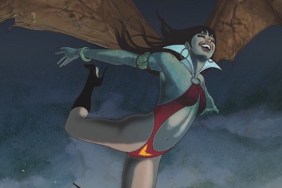It’s not just in San Diego, either. Across the nation, a movement has started wherein ordinary people have taken up the call and tasked themselves with an anonymous fight for the greater good. With names like “Master Legend,”” “Thanatos” and “Dark Guardian,” real life superheroes are a growing trend and one that filmmaker Michael Barnett has managed to catch on film.
Premiering tonight on HBO, “Superheroes” chronicles the lives of the men and women attempting to break down the boundaries between real-world crime and pop art justice. SuperHeroHype spoke with Barnett about his film and his interactions with the heroes themselves.








